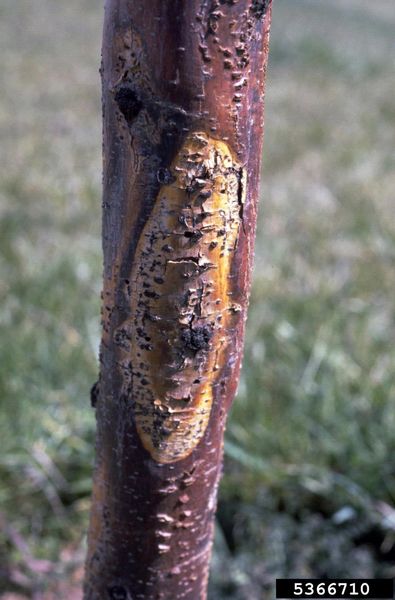Becoming more familiar with potential diseases that may impact or diminish tree health is one way to accomplish this. Thyronectria canker on honey locusts, for instance, is an infection that can cause undue plant stress and decline. You can learn more about it here.
What is Thyronectria Canker?
Thyronectria canker on honey locusts is caused by a fungus called Pleonectria austroamericana. In most cases, ideal conditions for Thyronectria infections occur during extended periods of drought. Stressed honey locust trees are most susceptible when damaged by strong storms or maintenance routines like branch removal or pruning.
Thyronectria Canker Symptoms
Thyronectria canker symptoms are fairly easy to observe. From a distance, growers may first notice that infected portions of the tree have started to die back, drop leaves, or turn yellow prematurely. Upon closer examination, cankers on the tree branches or trunk present themselves as reddish oval-shaped lesions. These cankers will most often be covered with darker-colored fungal fruiting bodies. The severity of the infection will greatly depend upon the location in which the cankers occur. While some cankers may only affect branches of the tree, others located near the trunk can cause complete loss.
Thyronectria Canker Treatment
Prevention will be key in Thyronectria canker treatment. To promote the overall health of honey locust trees, homeowners should do their best to avoid damaging their trees throughout the growing season, such as with pruning or hitting trunks with a weedeater. These tree “injuries” often serve as entry points for the fungus. Like any other canker, treating Thyronectria canker is difficult. In fact, once Thyronectria canker on honey locust has taken hold, there is no remedy, aside from the removal of infected trees or branches. If pruning or the removal of branches is required, growers should make certain to disinfect their garden tools between cuts in order to reduce the spread of spores. All infected plant matter should be removed from the garden. While there is no particular method to prevent Thyronectria canker on honey locusts, homeowners can also reduce the chances of infection by choosing cultivars that are more resistant to the fungus. Honey locust cultivars such as ‘Imperial,’ ‘Skyline,’ and ‘Thornless’ have demonstrated the most consistent resistance to this disease.
